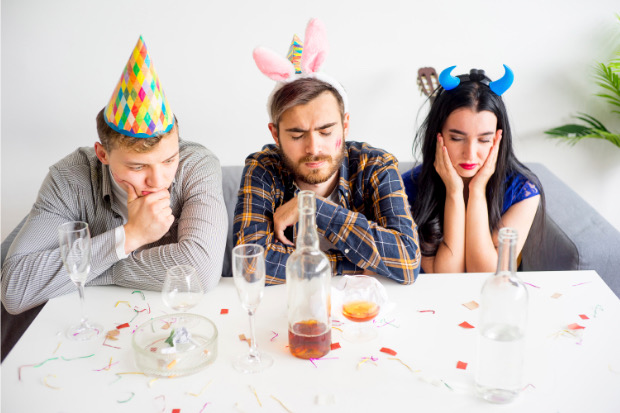Nightclubs are reopening in many parts of the world and music concerts and festivals are picking up steam. Which means that alcohol is likely to flow freely again, and that in turn means that hangovers aren’t far behind. But beyond the well-known physical inconveniences felt the day after excesses of the alcoholic kind, there is another condition that one should watch out for: “hangxiety.”
A combination of the terms “hangover” and “anxiety,” “hangxiety” refers to the experience of feeling the physical effects related to a hangover (headache or stomach ache, nausea, tiredness, etc.), compounded by psychological uneasiness.
A phenomenon that can occur on an occasional or more regular basis, as it can be linked to several factors. The most common reason (and also the most obvious) is linked to a generally reduced secretion of dopamine. Known as the “happy hormone,” this chemical, produced by the body and used to send messages among nerve cells, regulates our anxiety level. And the greater the alcohol intake, the greater the drop in dopamine, which can lead to feelings of anxiety.

Cortisol may also play a role in the emergence of feelings of “hangxiety.” Unlike dopamine, this hormone, which is associated with carbohydrate regulation, can increase stress if it is secreted in too large quantities. Excessive alcohol consumption will lead to an overproduction of cortisol and may therefore lead to stress and/or anxiety.
Add to that the guilt of remaining inactive the day after a drunken night out and failing to fulfill your responsibilities: missing a Sunday lunch with your family, not being able to take care of your children, or even skipping an important work meeting, if you couldn’t resist the temptation to go out on a weeknight and you came home a little (or a lot) later than planned.
However, we are not all equal when it comes to hangxiety. While some people may never (or almost never) feel it, others will experience it frequently. This is particularly the case for people with an anxious temperament. The idea of “drinking to forget” is therefore something to be avoided for those who may recognize themselves in this description.
But whether you are particularly susceptible or not, the advice to avoid hangxiety remains largely the same for everyone: hydrate, sleep or meditate to chase away your anxieties. And, of course, drink in moderation. JB
RELATED STORIES:
Attractive people have stronger immune systems, study finds
Could stress caused by extreme weather events make us age more quickly?


